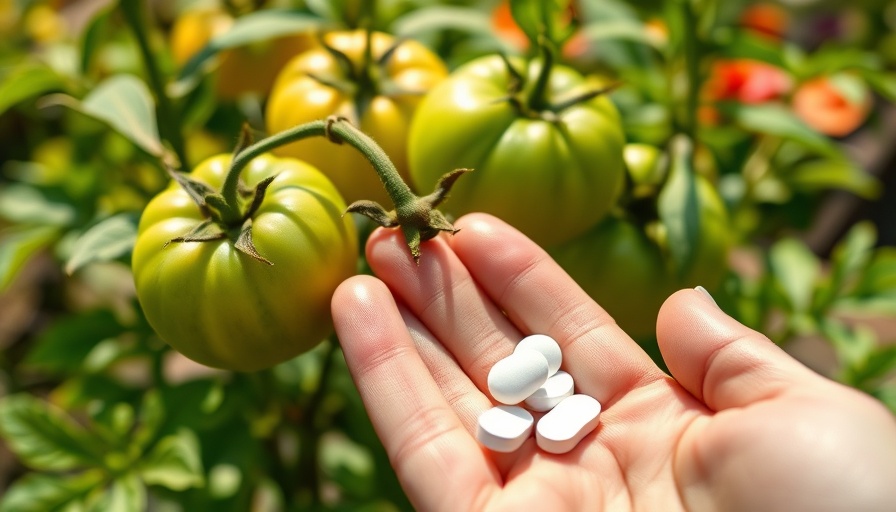
Unlocking the Secret: Can Aspirin Benefit Your Tomato Plants?
Gardening is an age-old passion that transcends generations, and it seems every season brings new trends and remedies that gardeners can't resist. One such remedy is the use of aspirin, a common over-the-counter medication that has been whispered about in garden circles as a miraculous solution for our beloved tomato plants. Many passionate gardeners, including families with backyard plots and dedicated farmers, are keen to discover if there’s any merit to these claims.
In 'The Truth About Aspirin And Tomatoes - Garden Quickie Episode 258', the topic of using aspirin for tomato plants is explored, revealing important insights that we’ve synthesized in this article.
Understanding Aspirin's Role in Plant Health
The curiosity surrounding aspirin stems from its active ingredient, salicylic acid—a compound that tomatoes naturally produce when under stress. This fascinating relationship between plants and aspirin was notably explored by researchers at Cornell University. The study found that when tomatoes, peppers, and eggplants encounter stress, they ramp up production of salicylic acid as a defense mechanism. So, is applying aspirin as a foliar spray simply an extension of nature's own processes?
Boosting Growth: The Science Behind Aspirin Application
It turns out, the answer is yes! By mimicking this natural defense response, it's believed that applying a diluted aspirin solution enhances the vigor and robustness of your plants. The recommended method is straightforward: dissolve a non-coated 325 mg aspirin in a gallon of water and spray generously on the leaves. This technique should start when your plants are around six weeks old, continuing bi-monthly until harvest. While not a cure-all, it indeed offers a valuable preventative measure, fortifying your tomatoes against stresses they may face during their growth cycle.
Practical Tips: Making the Most of Your Garden Remedies
Before you dive into this aspirin-adjacent gardening strategy, remember that moderation is key. This method enriches your plants, but should not replace standard horticultural practices. To truly thrive, your tomato plants still require foundational care including proper sunlight, watering, and soil quality. Consider combining this method with other healthy living practices such as organic fertilization or companion planting, which might amplify the benefits further. Remember—gardening is a journey that thrives on experimentation!
Community Wisdom: Sharing Success Stories
Gardening isn't just about plants; it's about community. Many families treasure the memories made while cultivating their gardens, sharing tips and tricks, or passing down age-old wisdom. Whether you’re growing tomatoes for the first time or have honed your skills over the years, don’t forget to share your experiences with neighbors or through gardening forums. Community feedback can bring new insights, like how others have integrated aspirin sprays into their routines and the results they've seen.
If you’ve enjoyed learning about the science of aspirin and tomatoes, why not take your gardening to the next level? Experiment with this gardening tip and see how it changes the health and yield of your plants. After all, successful gardening often leads to delightful family meals and cherished moments. Happy gardening!
 Add Row
Add Row  Add
Add 




Write A Comment